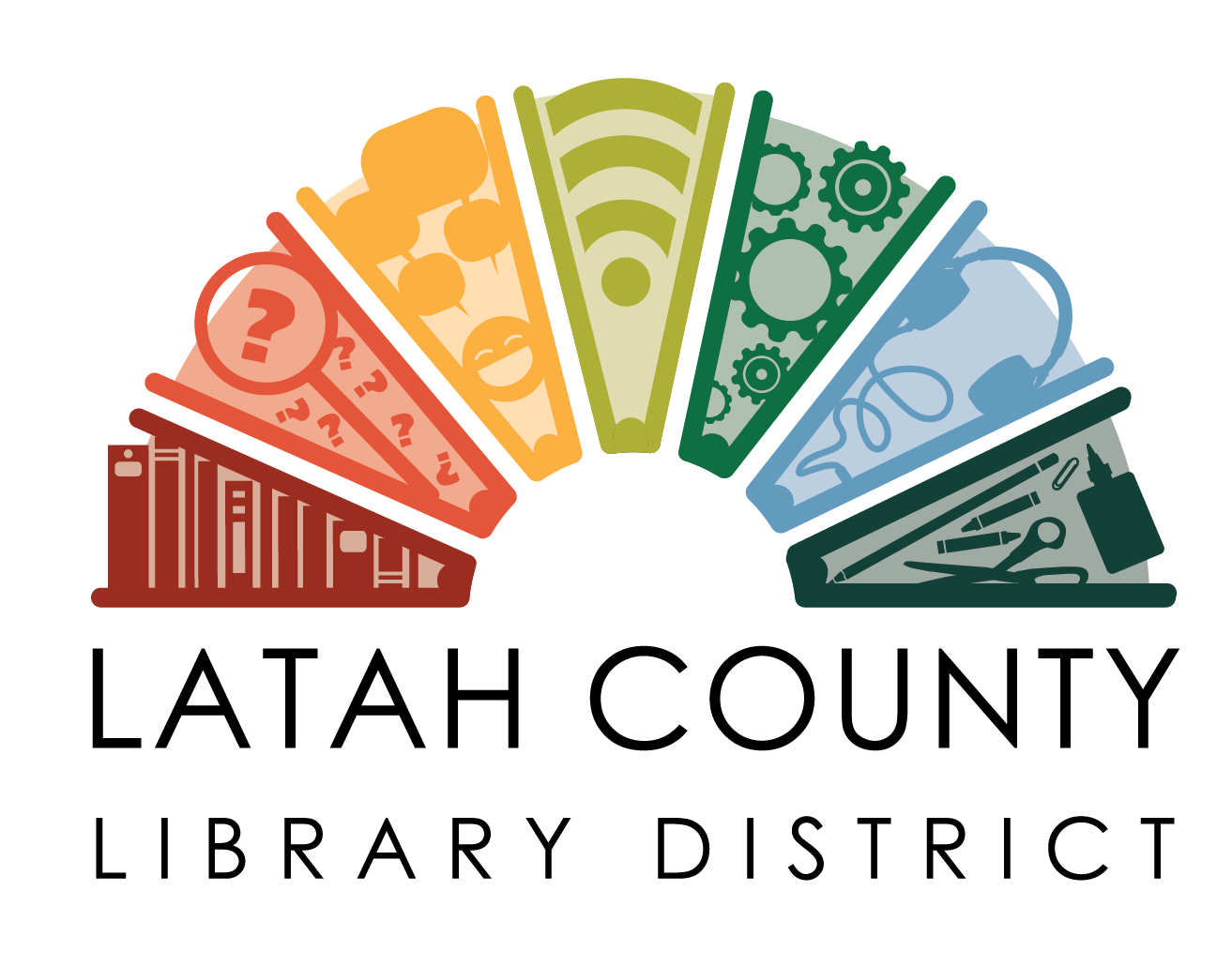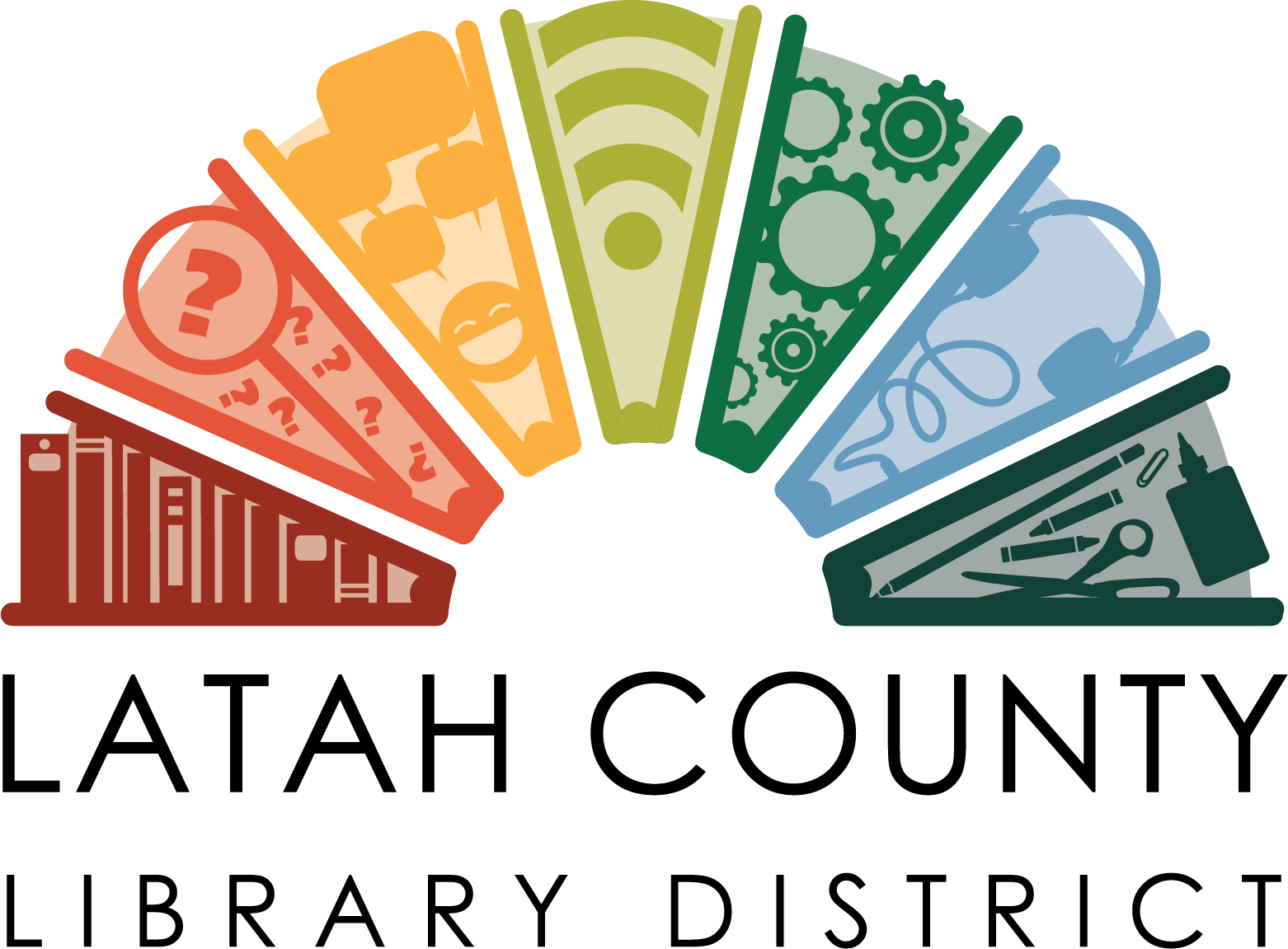Latah County Library District
Administrative Policies
We are in the process of migrating our Administrative Policies to PDF. This is a lengthy process so some policy links will link to text below, some will launch a new tab with a PDF. Thank you for your patience as we streamline this page!
1.0 MISSION VISION AND VALUES
2.0 GENERAL POLICIES
3.0 COLLECTION DEVELOPMENT
3.1. Materials Selection and De-Selection
3.2. Basis for Policy
3.3. Community Served
3.4. Selection of Library Materials
3.5. Collections
3.6. Maintenance & De-Selection Guidelines & Interlibrary Loan
3.7. Patron Requests/Purchase Suggestions
3.8. Resource Sharing
3.9. Donated Library Materials
3.10. Patron Concerns About Library Resources
3.11. Request for Relocation of Materials Under the Children’s School and Library Protection Act
3.12. ALA Documents Endorsed by the LCLD
4.0 CIRCULATION AND PATRON RELATIONS
5.0 PUBLIC SERVICE
6.0 BUILDINGS AND FACILITIES
7.0 MANAGEMENT STATEMENTS
8.0 FRIENDS OF THE LIBRARIES
9.0 DISTRICT FOUNDATION
10.0 VOLUNTEERS
11.0 APPENDICES
2.6.1 Enforcement
Staff members are expected to use their discretion to resolve conduct issues that unreasonably interfere with the use and enjoyment of the library by staff and patrons. If a violation of the Conduct Code, Unattended Children Policy, or Internet Use Policy cannot be resolved informally or is of such a serious nature that, in the opinion of the staff member, immediate enforcement action is warranted, the staff member may ask a patron to leave the library or may terminate the patron’s use of library computer equipment for the day.
Repeated or serious violations or refusal to comply when asked by a staff member to leave the library or relinquish control of a library computer may result in being barred from the library or denied use of library computers for a period of time not exceeding thirty (30) days. Refusal to comply with a staff member’s request to leave or terminate use of library computer equipment may also result in law enforcement being called for assistance.
The LCLD Director has sole authority to work with law enforcement to issue a trespass order, which may last for up to one (1) year.
A staff person who takes an action under this policy shall document the action in writing on a form to be approved by the Director.
Approved November 2004; Revised April 2006, November 2008, March 2010, March 2019, May 2019
2.6.1.a A policy for the administration, operation, and use of the libraries under control of the Board of Trustees of the Latah County Library District to contain the spread of communicable diseases
It is the policy of the LCLD Board of Trustees that the Library Director shall have the authority to regulate the manner of use of library facilities by patrons regarding any health measures deemed necessary by the Director for the mitigation or prevention of communicable diseases. Patrons who consider themselves aggrieved by any measures implemented by the Director may submit a written request to the Board of Trustees to have the measures reviewed. The Director shall forward such request to the Board chair who shall have discretion as to whether such measures should be added to the agenda of the next board meeting for review.
Approved September 29, 2021
2.6.2 Appeals
Any patron who is barred or trespassed from entering the library or from using library computers for a period of two (2) or more consecutive days may appeal the decision, in writing, to the Director. The Director may interview any party involved or witnesses and consider any other evidence available in reaching a decision which shall be communicated in writing to the patron and staff person. The patron may further appeal the Director’s decision in a writing delivered to the Chair of the Board of Trustees who shall place the issue on the agenda of the next scheduled meeting. The Board may interview any party involved or witnesses and may consider any other evidence in reaching a decision which shall be delivered in writing to all parties involved.
Approved November 2004; Revised April 2006, November 2008, March 2010, March 2019, May 2019
2.6.3 Unattended Children
LCLD is dedicated to providing services to patrons of all ages. Staff are available to assist children in using the libraries’ resources. However, it is not the role of LCLD or staff to provide child care. For liability reasons, the staff cannot take responsibility for children left alone at the library. Parents or guardians are responsible for the safety and behavior of their children at all times while in the library. For the safety and comfort of all of our patrons, LCLD has established the following policies:
1) A child who violates the patron conduct code may be asked to leave the library. If the child is unable to leave the library without supervision by a parent/responsible person, the parent/responsible person may be asked to leave the library with the child.
2) All children should carry emergency contact information at all times. In the following situations library staff may attempt to contact a child’s parent or guardian:
a. A child is found alone and frightened or crying in the library;
b. A child is alone and doing something dangerous;
c. A child violates the patron conduct code but is unable to leave the library alone;
d. A child under age 8 is left alone at the library;
e. Another person at the library seems to be a danger to the child.
f. No parent or caregiver comes at closing time to pick up a child who needs transportation to leave the library.
If the parent or guardian cannot be reached, or cannot arrange to immediately pick up their child, staff may place the child in the care of the appropriate law enforcement agency.
3) A child who repeatedly violates the patron conduct code may lose library privileges. If any of the situations described in subsection 2 occur repeatedly the child and/or the parent/responsible person may lose library privileges.
A staff person who takes an action under this policy shall document the action in writing on a form to be approved by the Director.
Approved November 2004; Revised April 2006, November 2008, March 2010, March 2019, May 2019
4.0 CIRCULATION AND PATRON SERVICES
4.1 Access to Library Cards
For the purpose of inventory control, the Library will issue free library cards to residents of Latah County and to counties with which the Library has reciprocal borrowing agreements. The application process is designed to protect the collection without unreasonably hampering access to it. A replacement charge will be assessed for lost or stolen cards.
4.2.1 Loss of Privileges
Library privileges may be revoked if library materials are not returned within a reasonable amount of time.
Approved February 2005; Revised January 2006, December 2006, June 2013, amended and approved by the LCLD Board on October 22, 2024

